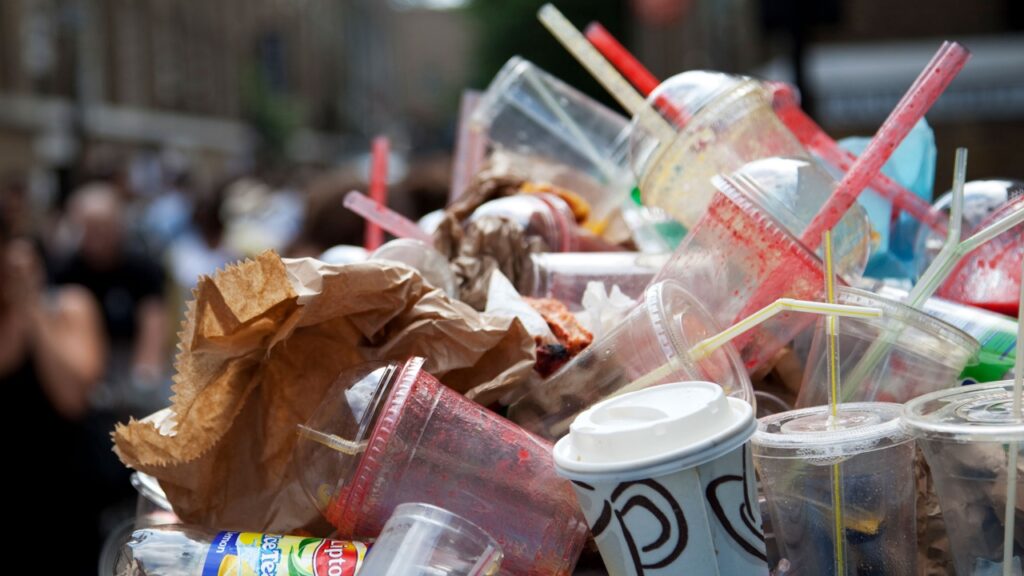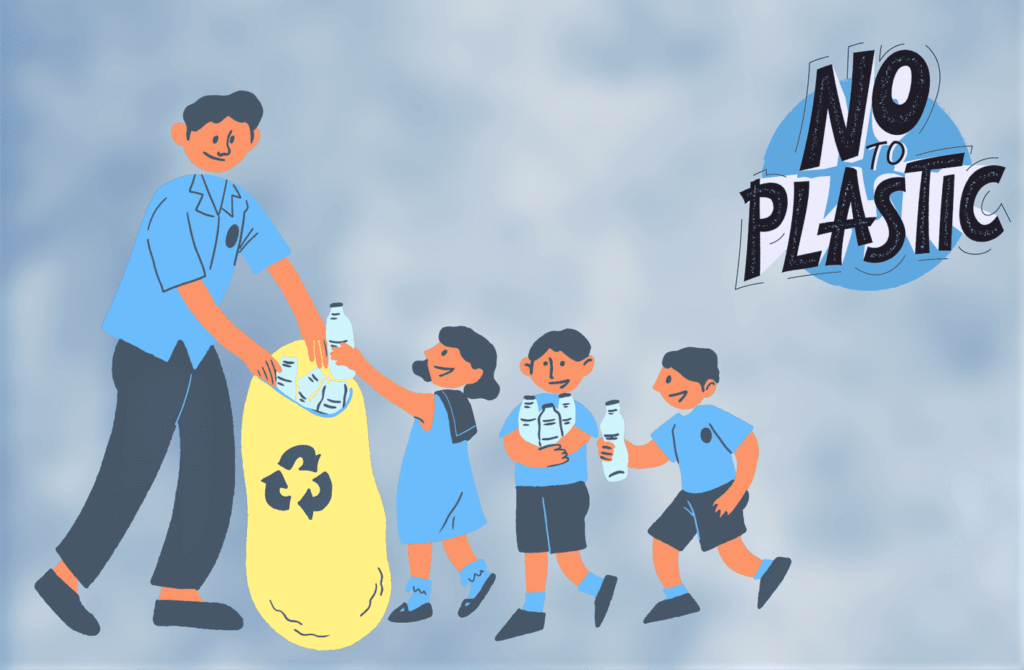‘Single-use plastics’ environmental effects are a serious concern all over the world. Developed countries like the USA, Canada, etc., and Environmental International Institution, like WWF, UNEP, etc. has taken serious steps towards eliminating single-use plastic from the world. Now the major effective question is, Can India Eliminate Single-use Plastic? Read further to get your answer.
Single-use plastic market value is nearly 1000 cr. And it employs nearly 2 lakh people directly and around 4.5 lakh indirectly. The central government’s decision on phasing out single-use plastic has first announced on 15th august 2019. In August last year center announced a ban on 1st July 2022.

What is single-use plastic and How India Eliminate Single-use Plastic
Single-use plastic is essential items made of plastic for single use like polythene carry bags, bottles, straws, wrappers, food packaging sachets, etc. Definition of single-use plastic varies from country to country Ban includes manufacture, import, stocking, distribution, sale, and use of single-use plastics. The world produces approximately 300 million tons of plastic each year, and India is featured in the top 100 most producing single-use plastic countries, currently ranked 94th and the top 3 in Singapore, Australia, and Oman. Per capita, SUP generation in India is 4 kg.

Why does single-use plastic become harmful to the world
Approximately, 300 million tons of single-use plastics are produced every year, and 50% of it is disposable, and only 10-13% of plastic items are recycled, which causes several problems like:
- single-use plastic manufacturing process uses a large number of fossil fuels which increases greenhouse gas annual emissions, and according to reports, SUP would be the reason for 5-10% greenhouse gas emissions by 2050.
- because of Its non-biodegradable nature, it can’t be broken down by natural decomposes like fungi, bacteria, etc., and serves as pollution. It enters the food chain through contamination from land and water resources.
- every minute, one truck of plastic waste is dumped into oceans, and every year thousands of marine animals like fish, turtles, etc., are killed by plastic, these microplastics get in the mouth, stomach, and digestive system of aquatic animals. The North Pacific Ocean contains a grey of marine litter, known as the Pacific Trash Vortex.
Indian efforts to tackle plastic waste
- Amendments in Plastic waste management rules 2016 and ban SUP
- Swachh Bharat mission -urban 2.0
- India is a signatory of Mar-pol (international convention on the prevention of marine pollution )
- India plastics challenges -Shackleton 2021
- India plastic pact -India has become 1st country in Asia that has made a plastic pact with WWF
- project re-plan, go litter partnership project, etc.
- National and state-level control rooms would be set up to enforce the ban
- State and UTS asked to set up border checkpoints.
- Central Pollution Control Board (CPCB) grievance redress app was launched to empower citizens.

How other countries and India Eliminate Single-use Plastic
- 124 countries that are part of UNEP, including India, signed a resolution to draw up an agreement that will make it legally binding for the signatories in the future.
- Bangladesh was 1st country to ban thin plastic bags in 2002
- China issued a ban on plastic bags in 2020 in a phased manner
- The Europian Union bans certain single-use plastics which alternatives are available
Way forward. - The entire banning process should be monitored by CPCB and SPCB, and India should stop raw material supply.
- Local authorities should strictly issue fresh licenses, with the condition that single-use plastic items will not be sold on their premises.
- Encouraging compostable plastics, and those found violating the ban can be penalized under the environment protection act 1986.





Top site ,.. amazaing post ! Just keep the work on !